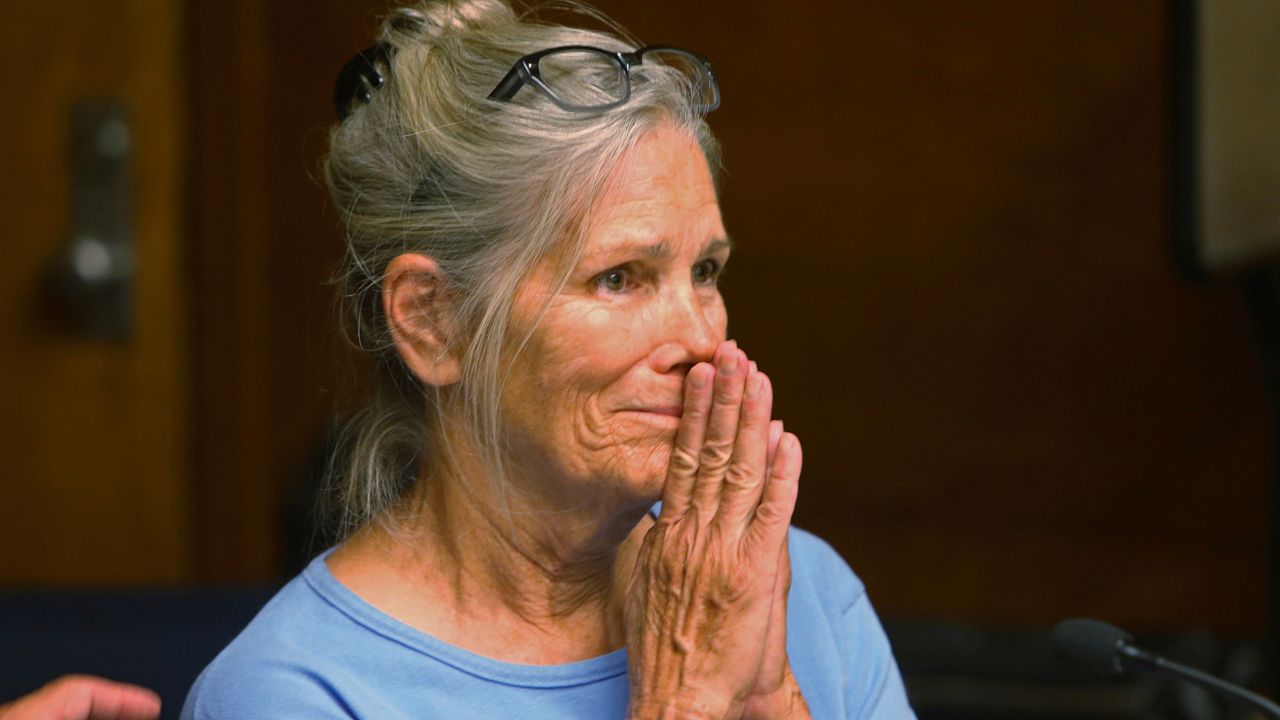LOS ANGELES (AP) — A California appeals court said Tuesday that Leslie Van Houten, who participated in two killings at the direction of cult leader Charles Manson in 1969, should be released from prison on parole.
The appellate court’s ruling reverses an earlier decision by Gov. Gavin Newsom, who rejected parole for Van Houten in 2020. She has been recommended for parole five times since 2016. All of those recommendations were rejected by either Newsom or former Gov. Jerry Brown.
Newsom could request that California Attorney General Rob Bonta petition the state Supreme Court to stop her release. Bonta's office referred questions to Newsom's office, which didn't respond to queries about possible next steps.
Van Houten, now in her 70s, is serving a life sentence for helping Manson and other followers kill Leno LaBianca, a grocer in Los Angeles, and his wife, Rosemary.
Newsom has said that Van Houten still poses a danger to society. In rejecting her parole, he said she offered an inconsistent and inadequate explanation for her involvement with Manson at the time of the killings.
The Second District Court of Appeal in Los Angeles ruled 2-1 to reverse Newsom's decision, writing there is “no evidence to support the Governor's conclusions" about Van Houten's fitness for parole.
The judges took issue with Newsom’s claim that Van Houten did not adequately explain how she fell under Manson’s influence. At her parole hearings, she discussed at length how her parents' divorce, her drug and alcohol abuse, and a forced illegal abortion led her down a path that left her vulnerable to him.
They also argued against Newsom’s suggestion that her past violent acts were a cause for future concern were she to be released.
“Van Houten has shown extraordinary rehabilitative efforts, insight, remorse, realistic parole plans, support from family and friends, favorable institutional reports, and, at the time of the Governor’s decision, had received four successive grants of parole," the judges wrote. “Although the Governor states Van Houten’s historical factors ‘remain salient,’ he identifies nothing in the record indicating Van Houten has not successfully addressed those factors through many years of therapy, substance abuse programming, and other efforts.”
The dissenting judge argued that there was some evidence Van Houten lacked insight into the heinous killings, and agreed with Newsom that her petition to be released should be denied.
Nancy Tetreault, an attorney for Van Houten, said she expects Newsom to request that Bonta ask the state Supreme Court to review the lower court’s decision, a process that could take years.
In addition, Bonta will likely request a stay of the appellate court’s ruling, Tetreault said. The high court could order Van Houten's release while it decides on whether to grant the stay.
“I will, of course, vigorously oppose any stay,” Tetreault said. “And they could let her out during that process.”
Van Houten was 19 when she and other cult members stabbed the LaBiancas to death in August 1969. She said they carved up Leno LaBianca’s body and smeared the couple’s blood on the walls.
The slayings came the day after other Manson followers, not including Van Houten, killed pregnant actress Sharon Tate and four others in violence that spread fear across Los Angeles and captivated the nation.
Anthony DiMaria, whose uncle Jay Sebring was killed along with Tate, said the judges' ruling is the latest painful twist that the victims' families have endured over the decades.
“To say the appellate court’s decision is a travesty of justice is a perverse understatement,” DiMaria said in an email to The Associated Press. “When you look at the profound, horrific nature of her crimes and the historic scars she has dealt American culture, it is unconscionable that an appellate court would make amends for Leslie Van Houten.”
Van Houten was found suitable for parole after a July 2020 hearing, but her release was blocked by Newsom. She filed an appeal with a trial court, which rejected it. She then sought her release through the appellate courts.
Hadar Aviram, a professor at UC College of the Law, San Francisco, said that for many years, some criminals seeking parole in California were kept in custody solely due to the heinousness of their past crimes, a practice that was stopped by a state Supreme Court ruling.
Since then, state officials have made other arguments to block parole, such as claiming defendants lacked sufficient insight about their crimes, said Aviram, who wrote a book about the parole process in Manson-related cases.
Van Houten, in particular, has largely stayed out of trouble since being incarcerated and has an advanced degree, Aviram said, adding that the law also requires that her young age at the time of her crimes be taken into account.
“There is no reason whatsoever to keep her behind bars except for the politics and optics of it,” she said.



